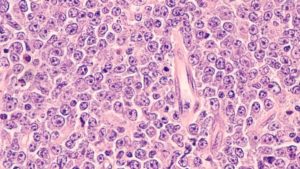
Hematologic Oncology and Blood Cancer
Hematologic oncology is a medical specialty concerned with treating cancers of the blood and blood-forming tissues. Specialists in this field help patients with a variety
HIPAA Alert: Potential Data Breach Learn More
Questions on Oncology, Hematology and/or Infusion Clinical Services due to COVID-19 Crisis – CALL 833-698-1623
Important Information for Our Patients Regarding the Coronavirus.
RCCA Providing Area Cancer Patients with Access to Care During Coronavirus Outbreak
RCCA Offering Patients Virtual Visits During Coronavirus Pandemic
Hematologic cancer, or blood cancer, is one of the most common diagnoses treated at Regional Cancer Care Associates. Blood cancer refers to types like leukemia and lymphoma, which are often listed among the most common cancers, as well as myeloma, a cancer of the plasma cells. Due to the unique characteristics of each blood cancer type, some hematologic cancer treatments are more effective than others. With help from the RCCA hematology specialists, our patients receive the individualized care and support they need.
Treatment varies from one patient to the next. Doctors personalize treatment based on the patient’s specific type of cancer, his/her overall health, and several other factors. In general, some of the most effective treatment options for people with hematologic cancer include:
Stem cell transplant
Some blood cancers develop because of the growth of abnormal blood cells. Leukemia, for example, causes cancerous white blood cells to form. A stem cell transplant is often recommended because this procedure introduces healthy blood-forming stem cells into the body to combat and replace the unhealthy ones. These healthy cells may be collected from the patient’s own body or taken from a matching donor.
Chemotherapy
Chemotherapy drugs can stop cancerous cells from growing. In most cases, a combination of different medications is given to get the best results. It’s common for patients to receive chemotherapy first followed by a stem cell transplant, but every case is different.
Radiation therapy
High-energy radiation therapy can destroy cancer cells within the body while alleviating pain and uncomfortable symptoms. As with chemotherapy, radiation therapy is typically followed up with a stem cell transplant.
Experimental agents in clinical trials
Clinical trials offer experimental therapy options that otherwise would not be available, but that may prove beneficial. Some patients with blood cancer may be eligible to participate in a clinical trial.
Other treatments
While the above treatments are the most common for blood cancer, RCCA also offers additional options depending on the type of cancer. A patient with leukemia, for example, may also receive biological therapy to help the immune system attack the leukemia cells.
The treatments listed above are modern medicine’s best defense against blood cancer, but they do come with potential side effects. The emergence of these effects will depend on the kind of transplant being performed, the types of chemotherapy drugs given, and more. But in general, patients receiving blood cancer treatment may experience:
Long-term side effects may include infertility, cataracts, and lung or bone damage, among others. If you’re concerned about possible side effects, talk to your doctor.
If you or someone you love has been diagnosed with blood cancer, go to RCCA to receive the highest level of care possible. Our team specializes in many types of hematologic cancer treatments for various forms of the disease, including Hodgkin and non-Hodgkin lymphoma, leukemia, multiple myeloma, and more. Schedule an appointment at one of our offices in New Jersey, Connecticut, Massachusetts, and the Washington, D.C., area to learn more and to discuss the best avenue of treatment for you.
For more information or to schedule an appointment,
call 844-346-7222. You can also schedule an appointment by calling the RCCA location nearest you.

Hematologic oncology is a medical specialty concerned with treating cancers of the blood and blood-forming tissues. Specialists in this field help patients with a variety

Lymphocytes are white blood cells in which lymphoma, a type of cancer that attacks the immune system, can originate. Hodgkin and non-Hodgkin lymphoma are two

One of the most effective ways to treat cancer is to harness the power of the body’s own immune system. This method is called immunotherapy.

Regional Cancer Care Associates is one of fewer than 200 medical practices in the country selected to participate in the Oncology Care Model (OCM); a recent Medicare initiative aimed at improving care coordination and access to and quality of care for Medicare beneficiaries undergoing chemotherapy treatment.